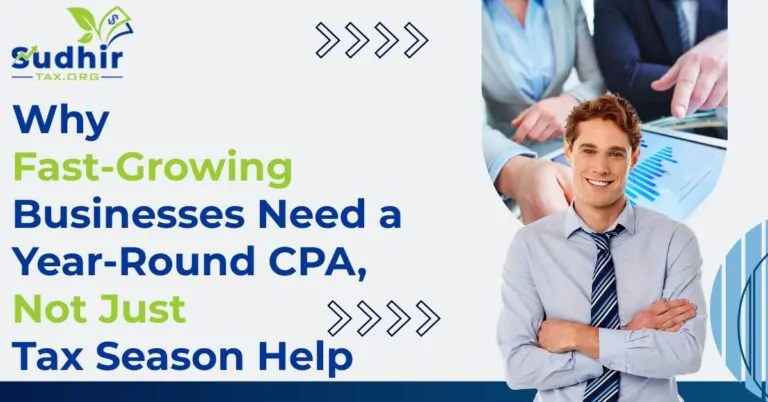Table of Contents
ToggleUnderstanding the Unique Tax Responsibilities of Freelancers
Freelancers and gig workers in the USA enjoy flexibility and independence in their work, but this freedom comes with a unique set of tax responsibilities. Unlike traditional employees, freelancers are considered self-employed, which means they are responsible for paying both income taxes and self-employment taxes, including Social Security and Medicare contributions. The IRS does not withhold taxes automatically from freelance income, so it’s up to the freelancer to track earnings, expenses, and tax obligations throughout the year. Keeping accurate financial records is essential to avoid surprises during tax season and to ensure compliance with federal and state regulations.
Keeping Accurate Records to Simplify Filing
One of the most important aspects of managing freelance taxes is maintaining organized records. Freelancers must track all sources of income, which often come from multiple clients, as well as deductible business expenses such as office supplies, internet, software subscriptions, and travel costs. Proper recordkeeping helps in accurately reporting income and claiming deductions, reducing taxable income, and potentially lowering overall tax liability. Many freelancers rely on accounting software to streamline this process, making it easier to generate profit and loss statements and identify expenses that qualify for deductions.
Understanding Estimated Taxes
Unlike employees who have taxes withheld by their employers, freelancers must pay estimated taxes quarterly to the IRS. Estimated taxes include both income tax and self-employment tax, and failing to pay them can result in penalties and interest. Calculating estimated taxes can be challenging, especially for those with fluctuating income. Freelancers need to estimate their expected annual income, subtract allowable deductions, and then calculate the tax owed for each quarter. Consulting with a professional tax consultant can ensure these calculations are accurate and help freelancers avoid underpayment penalties.
Maximizing Deductible Expenses
Freelancers can benefit from a wide range of deductible expenses that reduce their taxable income. Deductible business expenses may include home office costs, equipment purchases, professional subscriptions, marketing expenses, travel related to client work, and even a portion of internet and utility bills. Understanding what qualifies as a legitimate deduction is crucial, as incorrect claims can trigger audits or penalties. A qualified tax consultant can guide freelancers in identifying all eligible deductions while ensuring compliance with IRS regulations, ultimately optimizing their tax savings.

The Importance of Retirement Planning
Self-employed individuals are responsible not only for taxes but also for funding their retirement. Contributing to retirement accounts like a Solo 401(k) or a SEP IRA can provide significant tax benefits. Contributions are typically tax-deductible, which reduces current-year taxable income, while helping freelancers plan for the future. Early retirement planning also allows for strategic tax management, potentially lowering tax burdens in high-income years and providing long-term financial security.
Managing State and Local Taxes
In addition to federal taxes, freelancers must also consider state and local tax obligations. Each state has its own tax laws, and some cities impose additional local taxes on self-employed income. Freelancers should familiarize themselves with these requirements to avoid penalties and ensure timely filing. This is particularly important for those who work with clients across multiple states, as they may have tax responsibilities in more than one jurisdiction. Staying informed about state and local tax rules helps freelancers maintain compliance and avoid unexpected tax liabilities.
Dealing With IRS Notices and Audits
Receiving a notice from the IRS can be stressful, especially for self-employed individuals unfamiliar with tax law. Notices can range from requests for additional information to audits of filed returns. Freelancers benefit from having a professional tax consultant who can respond to these notices accurately and efficiently. A tax consultant can represent the freelancer in communications with the IRS, ensuring that all documentation is correct and deadlines are met, thereby reducing stress and potential penalties.
Planning for the Future
Freelancers who approach tax filing with foresight are better equipped to manage cash flow and reduce stress. Strategic planning throughout the year, such as setting aside funds for estimated taxes, tracking deductible expenses, and consulting with professionals for guidance, can significantly improve financial outcomes. Understanding tax obligations in advance allows freelancers to make informed business decisions, invest in growth, and avoid last-minute scrambling during tax season.

Benefits of Working With a Professional Tax Consultant
Partnering with a professional tax consultant offers multiple advantages for freelancers and gig workers. A tax consultant not only ensures accurate filing and compliance but also identifies opportunities for deductions and credits that might otherwise be overlooked. They stay updated on federal and state tax law changes and provide guidance tailored to the freelancer’s specific business and financial situation. This professional support helps minimize liabilities, reduce audit risks, and provide peace of mind, allowing freelancers to focus on their work rather than worrying about tax complexities.
Conclusion
Freelancers and gig workers face unique challenges in managing their taxes, from quarterly estimated payments to understanding allowable deductions and navigating state-specific regulations. Proper planning, meticulous recordkeeping, and professional guidance are essential to stay compliant and optimize tax outcomes. By leveraging expert advice, freelancers can save time, reduce stress, and ensure their financial matters are handled efficiently. Sudhir Tax Private Limited offers comprehensive tax services designed for freelancers and gig workers across the USA, providing accurate filing, expert advice, and full support to ensure peace of mind throughout the tax year.









